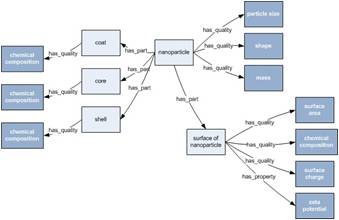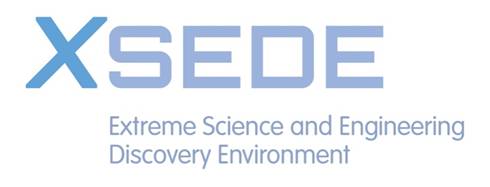Resources that Support the Goals of the NKI
Working toward the Cyber Toolbox
 |
The cancer Nanotechnology Laboratory portal (caNanoLab) is a portal designed to facilitate data sharing in the research community to expedite and validate the use of nanomaterials in biomedicine. caNanoLab provides support for the annotation of nanomaterials with characterizations resulting from physico-chemical, in vitro, and in vivo nanomaterial assays and the sharing of these characterizations and associated nanotechnology protocols in a secure fashion.
|

|
ClinicalTrials.gov is a Web-based resource that provides patients, their family members, health care professionals, researchers, and the public with easy access to information on publicly and privately supported clinical studies on a wide range of diseases and conditions. Most of the records in ClinicalTrials.gov describe clinical trials (also called interventional studies). A clinical trial is a research study in which human volunteers are assigned to interventions (a medical product, behavior, or procedure) based on a protocol and are then evaluated for effects on biomedical or health outcomes. ClinicalTrials.gov also includes records describing observational studies and programs providing access to investigational drugs outside of clinical trials (expanded access).
|

|
The GoodNanoGuide was created to serve as a central repository for good practices for safely handling nanomaterials that can be used and contributed to by people from all over the world. The mission of the GoodNanoGuide is to provide an Internet-based collaboration platform specially designed to enhance the ability of experts to exchange ideas on how best to handle nanomaterials in an occupational setting. It is meant to be an interactive forum that fills the need for up-to-date information about current good practices for managing nanomaterials in a work-related environment, highlighting new practices as they develop.
|

|
InterNano, a service of the National Nanomanufacturing Network, informs and connects the nanomanufacturing community of researchers and practitioners. InterNano creates, collects, contextualizes, and disseminates relevant and timely resources, such as news highlights, reviews, processes, and topical assessments of the current state of practice in nanomanufacturing. Visitors can both use these resources and contribute information to the InterNano knowledgebase. InterNano works cooperatively with complementary informatics initiatives to facilitate data sharing among groups engaged with aspects of nanomanufacturing.
|

|
The Clinical Trials Search Portal provides access to a central database containing the trial registration data sets provided by the registries listed on the website. It also provides links to the full original records.
|

|
By computing properties of all known materials, the Materials Project aims to remove guesswork from materials design in a variety of applications. Experimental research can be targeted to the most promising compounds from computational data sets. Researchers will be able to data-mine scientific trends in materials properties. By providing materials researchers with the information they need to design better, the Materials Project aims to accelerate innovation in materials research.
|

|
nanoHUB.org is the place for computational nanotechnology research, education, and collaboration. nanoHUB hosts a rapidly growing collection of Simulation Programs for nanoscale phenomena that run in the cloud and are accessed through your web browser. In addition there are Online Presentations, Courses, Learning Modules, Podcasts, Animations, Teaching Materials, and more to help you learn about the simulation programs and about nanotechnology. nanoHUB supports collaboration via Workspaces and User groups.
|

|
nanoinfo.org is a nanoinformatics platform that supports the environmental impact assessment of engineered nanomaterials (ENMs) with a central database of ENMs safety data and a toolkit for various exploration/analysis methods. These methods include the estimation of ENMs environmental exposure levels (MendNano), evaluation of ENMs environmental release (LearNano), analysis of EMNs high throughput toxicity data (HDAT), and analysis of ENMs environmental impact via Bayesian inference (NanoEIA).
|
 |
The Nanomaterial Registry is a publicly available web-based repository, developed by RTI International and three NIH institutes—NCI, NIEHS, and NIBIB—that curates, archives, and shares data on the characterizations and biomedical and environmental applications of nanomaterials, including nanoparticles, nanofibers, and nanofilms.
|

|
NIOSH is working with its national and international partners to develop a web-based resource, the Nanoparticle Information Library, to help occupational health professionals, industrial users, worker groups, and researchers organize and share information on nanomaterials, including their health and safety-associated properties. The information that NIOSH has incorporated into the searchable online database includes nanomaterial composition, method of production, particle characteristics, applications, availability for research or commercial applications, associated or relevant publications, and points of contact for additional details or partnering.
|

|
The NBI Knowledgebase is intended to offer industry, academia, the general public, and regulatory agencies a mechanism to rationally inquire for unbiased interpretation of nanomaterial exposure effects in biological systems. The knowledgebase serves as a repository for annotated data on nanomaterial characterization (purity, size, shape, charge, composition, functionalization, agglomeration state), synthesis methods, and nanomaterial-biological interactions (comparative analysis of nanomaterial impacts on embryonic zebrafish). Computational and data mining tools are currently being developed and incorporated into the NBI to provide a logical framework to conduct extrapolations and to identify key data required to predict the biological interactions of nanomaterials.
|
 |
The National Cancer Informatics Program (NCIP) Nanotechnology Working Group supports informatics needs of nanotechnology researchers. It is comprised of over 20 active participants from Federal Government, academic institutions, and private companies with a broad range of expertise and background. The goal of this working group is to demonstrate the scientific potential of federating nanotechnology databases through pilot projects aimed at integrated semantic search and retrieval of nanomedicine and nanotoxicology datasets.
|
 |
The NanoParticle Ontology (NPO), which is developed within the framework of the Basic Formal Ontology (BFO), and implemented in the Ontology Web Language (OWL) using well-defined ontology design principles. The NPO is developed to represent the knowledge underlying the description, preparation, and characterization of nanomaterials in cancer nanotechnology research.
|
 |
EPA launched ToxCast™ in 2007 to develop ways to predict potential toxicity of chemicals and to develop a cost-effective approach for prioritizing the thousands of chemicals that need toxicity testing. ToxCast™ uses advanced science tools to help understand how human body processes are impacted by exposures to chemicals and helps determine which exposures are most likely to lead to adverse health effects.
|

|
XSEDE is a virtual organization that provides a dynamic distributed infrastructure, support services, and technical expertise that enable researchers, engineers, and scholars to address the most important and challenging problems facing the nation and world. Driven by community needs, XSEDE accelerates open scientific discovery by enhancing the productivity of researchers, engineers, and scholars and making advanced digital resources easier to use. XSEDE supports a growing collection of advanced computing, high-end visualization, data analysis, and other resources and services. XSEDE is funded by the National Science Foundation.
|


